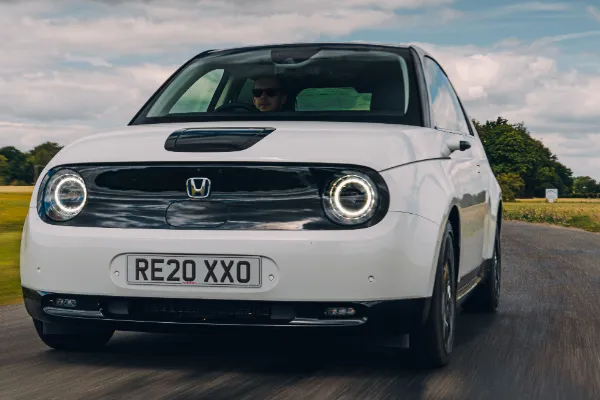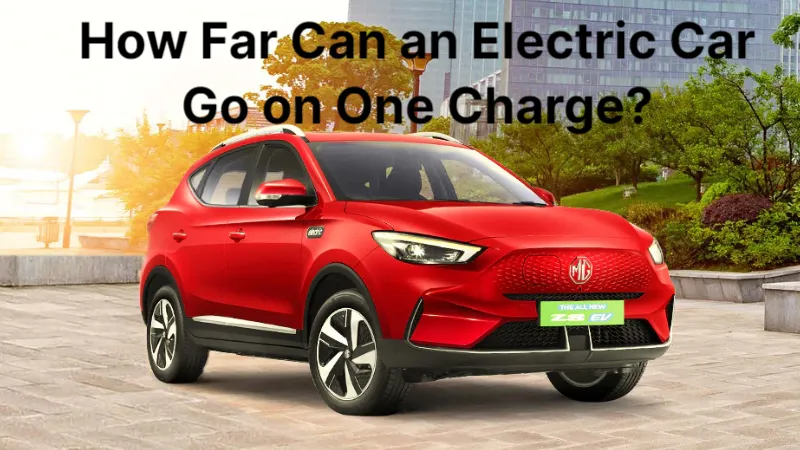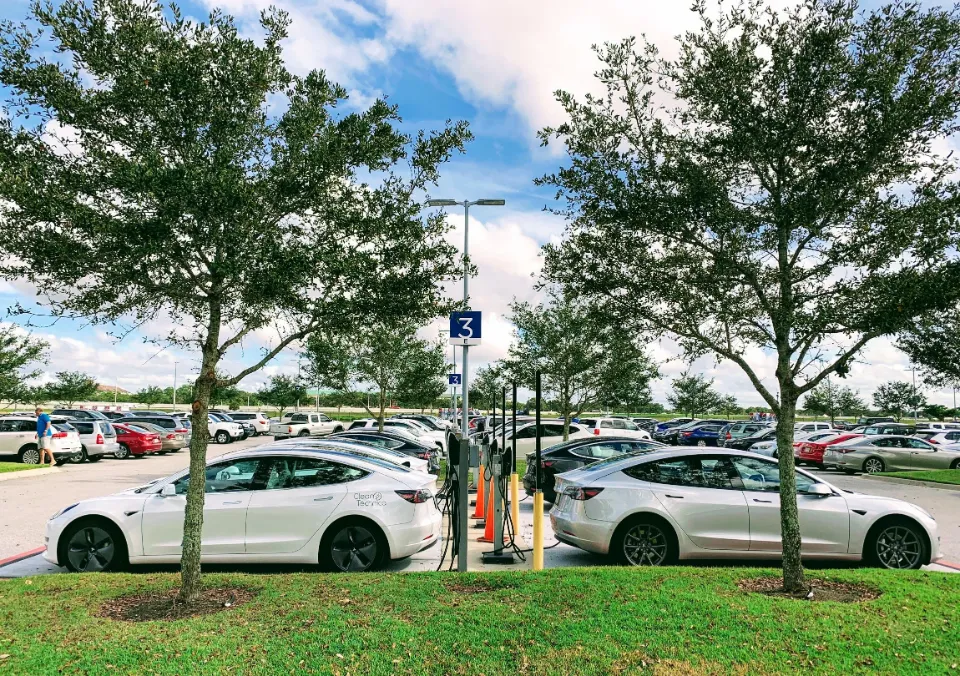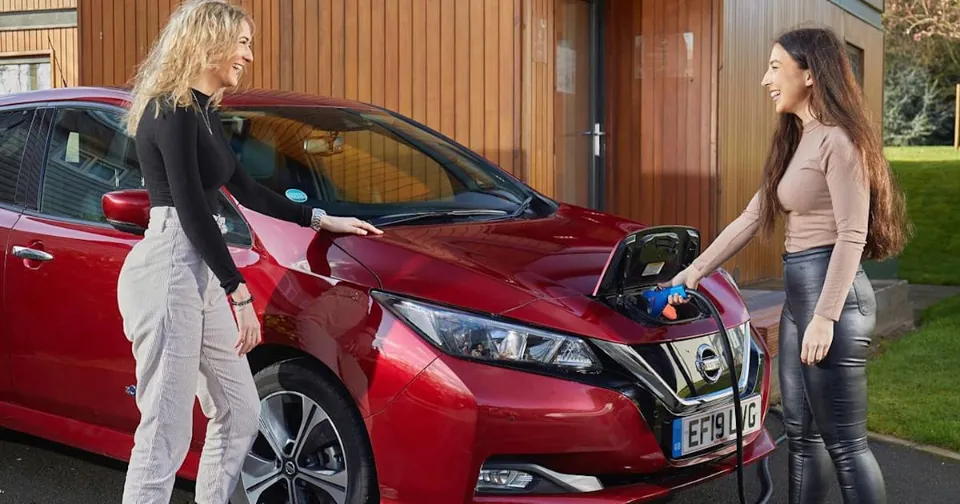Modern electric cars go farther than their predecessors, but people still ask: how far can one get on a charge? The range of an electric vehicle (EV) varies depending on a number of variables, which we’ll examine in this article.
Whether you drive a battery-electric vehicle (BEV) or a hybrid electric vehicle (HEV) will determine the answer to this question.
Full-electric BEVs today have an average range of 250 miles on a single charge. However, newer models from marquee companies like One charge will take Tesla and Mercedes up to 600 miles.
How Far Can An Electric Car Go?
Because the biggest obstacle to the adoption of electric mobility is drivers’ lack of confidence in their ability to find charging stations, the range of an EV is particularly crucial. As a result, when considering switching to electric vehicles, one of the main considerations that drivers tend to concentrate on is range.
The maximum distance an EV can travel depends on the vehicle being considered as well as the road conditions, which makes sense but there is no single answer to this question.
We’ll get to the bottom of these three issues in the section that follows: Which EV has the greatest range?’, ‘How far can an EV travel on average?’, and ‘The shortest-range electric vehicle is…’, to give you a better idea of the diversity in range available on the market today.

Which Electric Car Has the Longest Range?
Tesla currently holds the title of having the longest range EVs, with the Model S Long Range Plus boasting a 405-mile range. Since 2012, Tesla has topped the rankings for driving range, but the competition will determine whether they can keep their lead.
Many rivals are getting closer to winning this prestigious title, including Mercedes, Ford, Jaguar, and Porsche. Additionally, newcomers like Rivian, an electric vehicle startup backed by Amazon, Lucid Motors, a company with headquarters in Silicon Valley, Lightyear One, a company that makes long-range solar electric vehicles in the Netherlands, and market leader NIO are all inching closer to taking the top spot.
There is no doubt that as batteries continue to become more affordable, this number will increase to rival the range of a conventional internal combustion engine (ICE) vehicle.
What is the Average Range of An Electric Car?
Over the past ten years, the median range of EVs has steadily increased. Only three different models of fully electric cars were available on the market in 2011, and their ranges on a full charge ranged from 63 to 94 miles. The current estimate is 194 miles per charge, which is a much higher figure.
Which Electric Car Has the Shortest Range?
Generally speaking, the battery can be larger the larger the vehicle. Also true in reverse. Small city cars aren’t built for long trips; instead, they’re made to be quick, inexpensive to operate, and simple to park. This leaves less room for a battery.
The Smart Fortwo EQ was the smallest electric vehicle we could find at the time this article was being written. A city car with two seats and an all-electric 84-mile range. However, at a charging rate of 22 kW, a full charge would be completed in only 40 minutes, which is significantly less time than it would take to charge an EV with a bigger battery.
Factors That Affect the Driving Range of Electric Cars
Battery size isn’t the only factor that affects the range of an electric car:
- Driving speed; the faster you drive, or the more aggressive you accelerate, the quicker the battery will drain.
- Temperature; the colder it is outside, the faster the battery will drain.
- Electrical-powered features; when using the heating, The more features that use AC or other electrical power, the faster the battery will discharge.
Renault’s Zoe e-Tech Electric has a useful tool that lets you enter the driving conditions and view the battery capacity change to help you assess the effect of these factors.

Should You Drive An Electric Car to Empty?
A fully discharged EV battery is something you should definitely avoid. Doing so will have a negative effect on the battery’s capacity and shorten its life. Do your best to keep the battery of an electric vehicle’s charge range between 20 and 80%, which is where it should be.
Thankfully, a lot of contemporary electric cars come equipped with warning systems that let you know when your battery is getting low. Some of the more advanced ones even notify you when you’re close to a charging station so you can recharge there and then. In order to recharge well in advance of becoming stranded, you’ll frequently be able to see how many miles you have left to travel before the battery runs out.
An EV is finished when it reaches zero, as opposed to a gas vehicle, where you may be able to squeeze out a few more miles when the gas light comes on. Avoid letting the battery run down completely because if that happens, you’ll need to be towed to a charging station. Topping up throughout the day, or at home overnight, goes a long way toward eliminating that problem.
How Do You Know What Range to Look for in An EV?
Determine the range you require by figuring out how many miles you drive each day. Will the EV you want’s typical range be sufficient for that need? Then it would make a good candidate.
Consider what charging infrastructure you have nearby. Will you have access to public charging stations? Will your workplace allow you to refuel? During the night, charge at home? A longer range won’t mean much if charging is too challenging where you live.
What’s the weather like where you live? You should consider whether it’s extremely hot or extremely cold because it will at least slightly reduce your range.
Finally, be aware that an EV’s battery will deteriorate over time, causing it to lose some of its initial range. It’s unlikely to be a significant amount—typically five percent over the first few years—but it will happen. Take the initial estimated range, calculate 10% of it, then deduct that amount from the original range to determine if it still meets your needs.
When you consider all of these elements, you should have a good idea of whether or not driving an electric car will cause you any range anxiety. Many people discover that they can get around just fine in an electric vehicle, but it’s always best to do your research to avoid unpleasant (and expensive) surprises.
Read about How Much Does It Cost to Charge An Electric Car?
How Long Does It Take to Charge An EV?
There are three charging levels for EV charging stations, each of which offers a different charging voltage. Level 1 has the lowest voltage and takes the longest to charge due to the difference in voltage.
Level 1. Most recent EVs come with a level 1 charging cord. You can plug in a household plug to a level 1 charging unit because it runs on 120-volt electricity. This offers the longest charting time.
In comparison to level 1, level 2 charging is approximately ten times faster. A 240-volt plug, such as the one found on an electric clothes dryer, is needed for Level 2.
Is an Electric Car Good for Long-Distance Travel? Level 3. This capacity is provided by DC (direct current), and you can find it at public charging stations.
You can use an electric car for long-distance travel as long as there are enough charging stations along your route – otherwise, it’s likely you’ll suffer “range anxiety”. In contrast to gas stations, which are common along American highways, very few of the nation’s highways have regular charging infrastructure. But significant players like EVgo, Electrify America, and Tesla are working together to improve the EV charging infrastructure.
Can You Travel across the Country in An Electric Car?
The range of electric cars may still be limited even with the increased range due to EV battery capacity and charging times. Up until there is a uniform standard of charging infrastructure across the nation, it is best to continue using regular cars for cross-country travel. In this manner, if you run out of gas, you can at least hike to the closest gas station!
Watch how various states develop their charging infrastructure in the coming months, though.
FAQs
Are Electric Cars Worth It?
Despite the fact that the initial cost of an electric vehicle is typically higher than that of a gas-powered one, California electric car rebates and incentives, such as the California Clean Vehicle Rebate Project, can make them more affordable. With gas prices rising, electric vehicles may end up being more cost-effective in the long run.
Do Electric Cars Really Save You Money?
When comparing the average cost of an electric car to gas car, owning an electric vehicle is cheaper than owning a gas-powered car, especially if you plan on keeping the car for several years.
How much you can save by driving an electric vehicle depends on the make, model, and features you select as well as how long you own the vehicle. According to a Consumer Reports study, gas-only vehicles have higher long-term repair costs.
Since EVs can be expensive, you might need to put money aside for a vehicle.
How Long Do EV Batteries Last?
Electric vehicle batteries are being made to last 15 to 20 years thanks to ongoing advancements in EV battery technology. Because EV batteries don’t function as well in the cold, a car driven in chilly or harsh conditions may run out of power sooner.
Weather can affect the range and mileage of electric vehicles.
Summary: How Far Can Electric Cars Go in One Charge?
New battery technology is expanding the typical driving range of electric vehicles. Although the driving range and mileage of electric vehicles (EVs) vary, most drivers can anticipate traveling 250 miles on average on a single charge. Remember that a number of things, such as the weather, the size of the battery, and others, can impact the range of an EV.
With one charge, Tesla’s long-range model can travel about 400 miles. A car with an estimated 500+ mile driving range was created by new automaker Lucid Motors, breaking the charge barrier.





